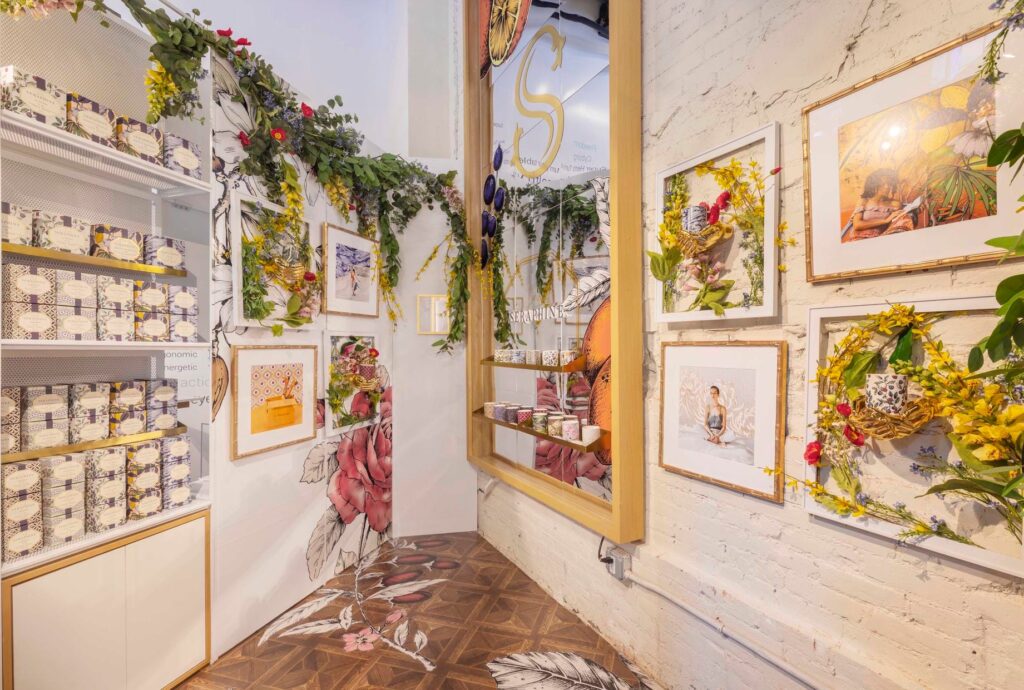Retail Why Large Retailers And Wholesale Platforms Are Critical To Small Brands Brin Snelling Contributor Opinions expressed by Forbes Contributors are their own. I write on the relationship between e-commerce and real estate. New! Follow this author to improve your content experience.
Got it! Jun 16, 2022, 09:00am EDT | Share to Facebook Share to Twitter Share to Linkedin L’or de Seraphine display at Showfields in New York City Eitan Gamliely In building an omnichannel experience for shoppers, digital brands need a place for existing customers to touch and feel and for new customers to be acquired. More prominent brands with an extensive product assortment have the benefit of being able to open standalone stores. But for smaller brands, it’s more complex—it requires a team of partners to give them a substantial physical presence.
A presence that, believe it or not, is critical to growth and success. Large retailers allow customers to access small brands easily and help those brands tap into new streams of revenue. L’or de Seraphine display in Bloomingdale’s featuring the Fragrance No.
28 candle in the checkered . . .
[+] box. Bloomingdale’s Today, L’or de Seraphin e, an artisanal home fragrance brand, is relaunching its exclusive product with Bloomingdales, Fragrance No. 28 , a unique scent with notes of sandalwood, bergamot, and amber.
“The importance of brick-and-mortar distribution for a new candle brand is so important, so the customer can smell our product IRL [in real life]. Working on this exclusive with Bloomingdales helps to expand our footprint within their stores, bringing us more brand awareness, along with the validation that working with a luxury retailer like Bloomingdale’s brings us,” shared the brand’s CEO and co-founder, Dara Weiss, and Head of Sales, Priscilla Camacho. L’or de Seraphine has many other products in Bloomingdales and Nordstrom JWN stores and has even popped up in new-age department stores like Showfields .
Similarly, Lusomé , a Canadian-based technical sleepwear brand known for eliminating night sweats, relies heavily on its Nordstrom partnership to show up for its customers in a physical setting. “Whether large retail like Nordstrom or mom-and-pop boutiques, we have enjoyed 50% of our total revenue from our B2B customers. The digital world of Google and Facebook ads has become more challenging, and the cost to acquire and keep customers has become so expensive and unstable that our wholesale channel is proving to be a very important and profitable revenue stream,” stated the founder and CEO, Lara Smith.
MORE FOR YOU ‘No Christmas Trees, No Christmas Trees’ Another Shortage May Be On The Way The Grocery Business Is Going To Get Much More Competitive Costco Addresses Supply Chain Pains By Chartering Their Own Ships Bee’s Wrap on display in an REI store. Bee’s Wrap Department stores like Bloomingdales and Nordstrom are traditional retailers that small business supporters may not consider relevant, especially with the growing trend to shop local . However, these chain retailers provide a value many don’t realize – they’re a physical home for many small retail businesses.
And it isn’t just department stores providing this space. REI, The Container Store, and Crate & Barrel are all retailers that house Bee’s Wrap , reusable beeswax food storage wraps. “These in-store opportunities have introduced the concept of a reusable food storage wrap to countless consumers and lowered the barrier to entry… to trying a new product,” said Tara Murphy, CEO of Bee’s Wrap.
It took the brand some time to get into large retailers, and it originally relied on small boutique shops to take a chance on the product. It’s not easy to enter physical stores as a new brand, which is why wholesale platforms have become a game-changer for many. Wholesale platforms like Faire and Bulletin are removing barriers to entry and facilitating customer feedback.
Sometimes, the best way to meet customers where they live and shop is in local neighborhood stores. Platforms like Faire and Bulletin tackle the complexity of these smaller partnerships by acting as an intermediary. L’or de Seraphine partners with Bulletin, which has helped them reach parts of the country where they don’t have sales representation and makes it easier for small retailers to order products.
Lusomé, on the other hand, recently launched on Faire, hoping it would replace the need to attend trade shows and could benefit from a one-stop-shop for small retailers. The brand has also found that its smaller wholesale partnerships have helped it receive qualitative customer feedback from sales associates rather than the strictly quantitative data collected as an e-commerce business. Meanwhile, Bee’s Wrap has been on Faire for a while and has seen its sales grow on the platform by 35% over the last two years.
These platforms also share data and marketing tools with the brands to help them reach new accounts. Lusomé sleepwear on display in Shades of Sleep in Calgary. Lusomé and Shades of Sleep Nowadays, some may believe that physical stores aren’t necessary, but not having a physical presence makes it incredibly challenging for small businesses to grow and thrive.
As Weiss and Camacho of L’or de Seraphine shared, “as a new brand, physical retail was absolutely crucial to reaching our audience. With no email list or social media followers, we could have the best product, but nobody would know about it. ” The reality is that large retailers, department stores, and wholesale platforms have made physical retail—a critical channel—accessible for small brands.
Follow me on Twitter or LinkedIn . Check out my website . Brin Snelling Editorial Standards Print Reprints & Permissions.
From: forbes
URL: https://www.forbes.com/sites/brinsnelling/2022/06/16/why-large-retailers-and-wholesale-platforms-are-critical-to-small-brands/
